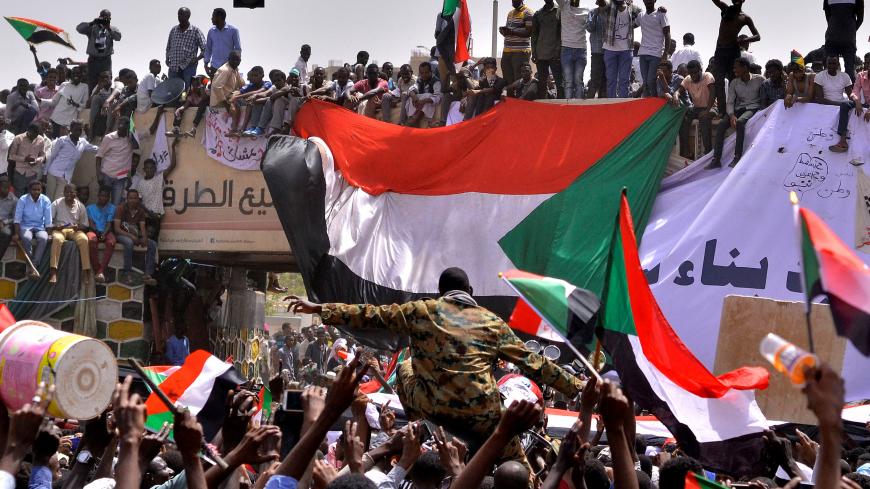Given that Iran’s alliance with Sudan came to an abrupt end in 2016, Iranian officials have opted for a diplomatic silence when it came to protests in the country over the last four months. However, among Iranian journalists and on social media, there has been a spectrum of reactions to the Sudanese military’s announcement that President Omar al-Bashir, who has ruled the country for 30 years, has been taken into custody.
A number of Iranian media outlets called it a "coup" when the Sudanese defense minister announced the army's takeover of major media channels and its intent to administer the country under a two-year transition period. Iranian activists online welcomed the news that the Sudanese army would free all political prisoners. Mehdi Mahmoudian, a Reformist activist, tweeted, “Hopefully, before it is too late, instead of Sudan, this news is published about Iran.” Another popular Iranian tweep wrote that, when it comes to long-serving leaders in the region, Iran’s Supreme Leader Ayatollah Ali Khamenei, having ruled for 30 years, is now “at the top of the leaders-for-life in the world,” following Bashir's arrest.



